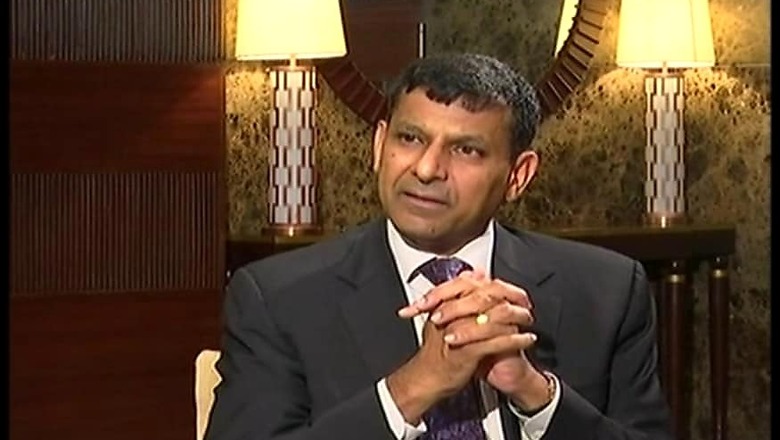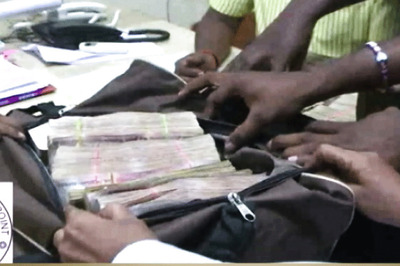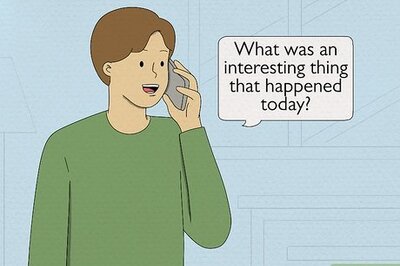
views
New Delhi: Former RBI Governor Raghuram Rajan in an exclusive interview with CNBC-TV18 Executive Editor Latha Venkatesh says “alternative approaches" to note ban were available. He says as a civil servant the governor can’t just oppose government policies and if the disagreement is over a momentous action, the governor’s “ultimate weapon" is to quit.
Edited excerpts form the interview:
On Demonetisation
Rajan said “alternative approaches" to the note ban were “possible" and that his view was similar to that of his predecessor YV Reddy’s.
Reddy has publicly criticised note ban and said: “Better options were there. It resulted in pain while gains in future are not certain. But one thing that came to the fore was people’s willingness to fight corruption. Demonetisation has nothing to do with black or white money. It has only given information about people who were holding the cash."
On Note Ban Impact
Rajan said while it was tough to accurately measure effects of note ban, some businesses may not have had buffers to sustain during demonetisation. He termed “twin balance sheet problem" created by slow growth due to demonetisation and short-term uncertainty created by GST was a “big growth dampener".
On RBI Governor's Mandate
Rajan said as a civil servant you “can’t just oppose government policies". He said if you disagree with the government on a momentous action, a governor’s “ultimate weapon is that he can quit"
On India's Growth Picture
“Best sign of growth is when private sector capital expenditure returns," said Rajan. Calling for “fundamental reform" in power sector, Rajan said he’s “worried about the power sector" as discoms haven’t reduced line losses and they recovered only because of fall in interest costs. He also raised alarm over quality of education which is “falling drastically".
On Leaving RBI
Rajan said he “won’t speculate" on why an extension wasn’t offered to him. “I had a three-year term and I left when it ended… I didn’t resign, I wasn’t fired, my term ended." He added that he was “in dialogue with the government" but he “didn’t see reaching an agreement". The former governor said he had met Prime Minister Narendra Modi.
On Famous Speeches
Rajan said he “doesn’t regret" making any of the speeches but he “would have liked to guide the responses" to those speeches. However, when asked, he said he did regret referring to ‘Hitler’ in one of the speeches. On his speech on tolerance at IIT Delhi, Rajan said he was “proud of it".
He said India’s advantage is that it’s an “open society", which “helps us compete on frontiers of knowledge". The former governor said “being tolerant is necessary for development". He added that he didn’t “want to compromise" on his “agenda".
On Possibility Of a Comeback
Rajan said he’s “open to serving the nation again" but he is “not actively looking for opportunities".
On Inflation Control Methods
Rajan said he “didn’t control inflation more than required" and he had used “model and judgment-based forecast". He, however, added that his forecasts were “not perfect" as oil and food prices helped in checking inflation. He said no one had predicted crude oil price fall and there was scope to update the model. Former governor said inflation targeting is not new.
On NPAs
He said “operationalising Insolvency and Bankruptcy Code (IBC) was a very important step… need to take NPA cases to a conclusion."
On Global Markets
The man who had predicted the 2008 global recession said “auto loans are a concern in the US" and “some countries have frothy housing sectors".



















Comments
0 comment